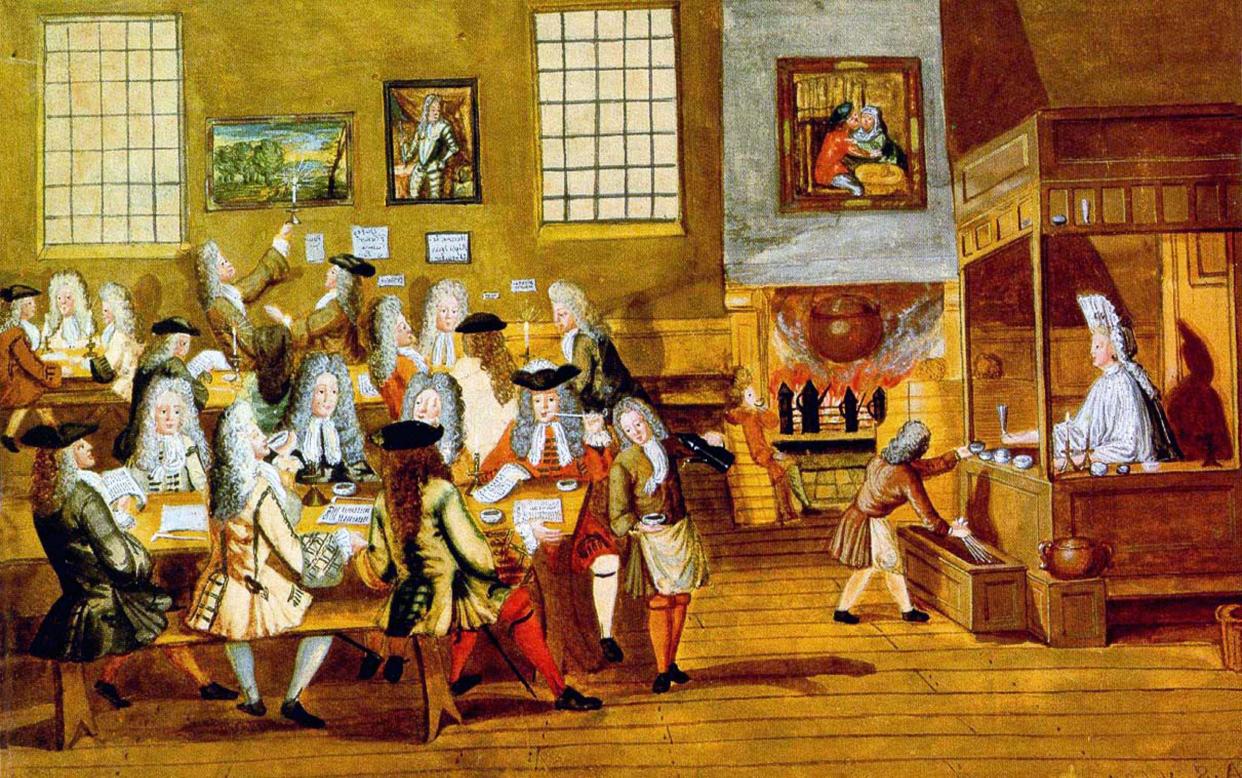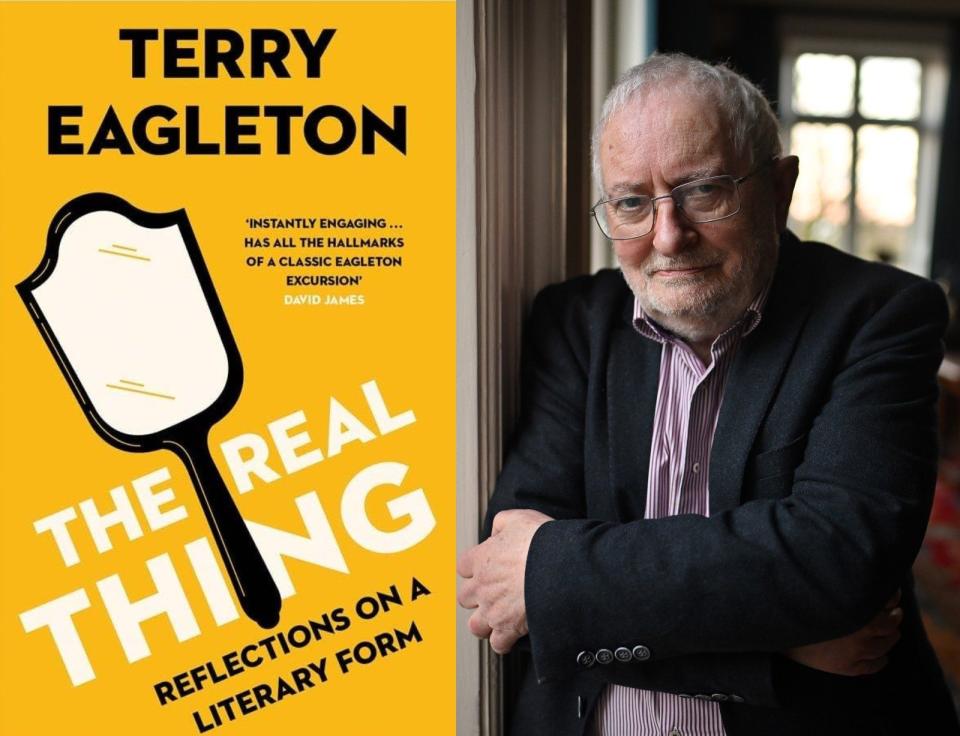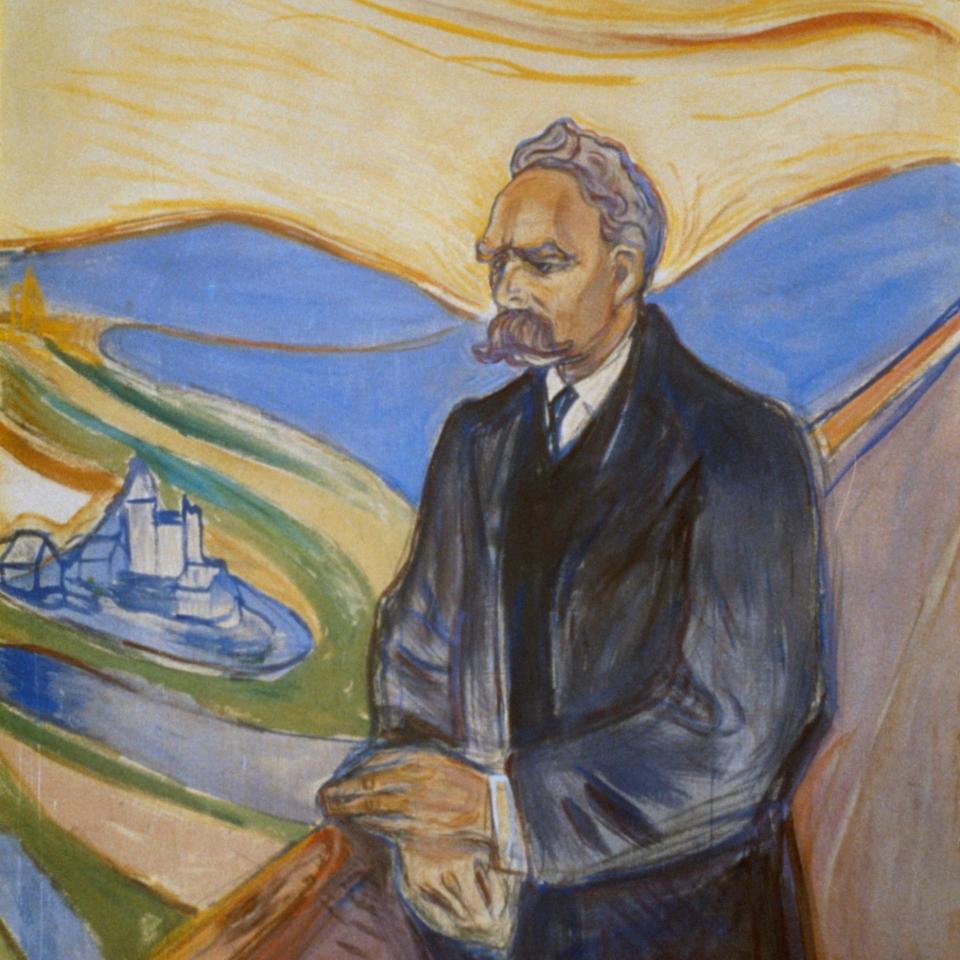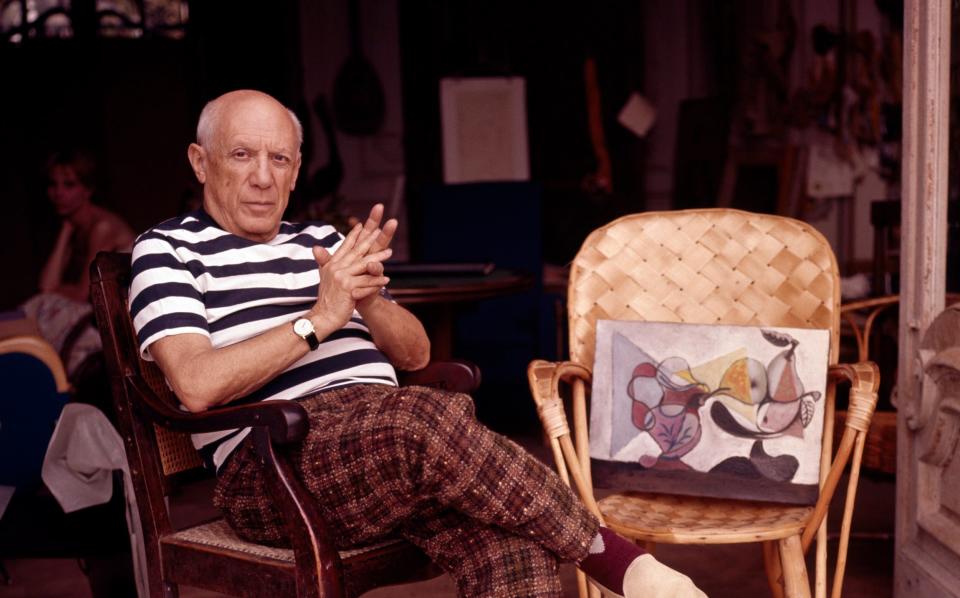Why should a good novel be realistic? Ask a Marxist

- Oops!Something went wrong.Please try again later.
- Oops!Something went wrong.Please try again later.
- Oops!Something went wrong.Please try again later.
A man once came up to Pablo Picasso in a railway compartment. Why, he asked, did the Spaniard not paint people as they really are? “What do you mean?” asked Picasso. The man produced a photograph from his wallet and said: “That’s my wife.” Picasso responded, “Isn’t she rather small and flat?”
Terry Eagleton’s delightful new book, The Real Thing, explores what artistic fidelity to the “real world” involves, and why, in particular, many of us still like reading “real-life” dramas – such as the latest Tessa Hadley or Karl Ove Knausgaard – and regard the new Richard Osman thriller or the latest instalment in Suzanne Collins’s Hunger Games franchise only through disdainful lorgnettes.
Being a Marxist, Eagleton cleaves to the idea that realism is a bourgeois phenomenon, the middle-class art-form par excellence, in which kings are banished, ink-stained clerks come centre-stage, and anything involving unicorns, gods or flying Ford Anglias is deeply suspect. The realist novel, Eagleton tells us, “turns recurrently on money, property, land and inheritance. Engrossed by the individual, it explores complex psychological states beyond the reach of epic or romance.”
One might suspect that Eagleton means these last words despairingly, and that any proper revolutionary socialist wouldn’t rest until the last middle-class realist writer wittering about first-world problems such as property and land were strangled with Anthony Trollope’s entrails. But this is no anti-realist polemic. Rather, Eagleton does something unexpected: he comes to praise what you might expect him to bury.
Eagleton’s book is also the tale of two book-burnings by philistinic bishops. In the early 18th century, a nameless bishop burned Gulliver’s Travels by Jonathan Swift, saying he didn’t believe a word of it. (Was it the struldbruggs of Luggnagg that did it, Your Grace?) Then, in the late 19th century, disgusted with the “insolence and indecency” in Thomas Hardy’s Jude the Obscure, the Bishop of Wakefield threw that novel on the fire. In one scene, impoverished Jude drunkenly recites the Nicene Creed in a pub, while his and his lover Sue’s adopted child hangs their two other children and then himself for being “too menny”. Bishops, it seems, can stand neither too much literary realism nor too little.

In between these incinerations, realism arose. It typified what Karl Marx thought was the bourgeoisie’s leading achievement: to systematically drown “the most heavenly ecstasies of religious fervour, of chivalrous enthusiasm, of philistine sentimentalism, in the icy water of egoistic calculation”. But realism is valuable precisely because it tells it like it is. Like Marx, Eagleton can’t help admiring the bourgeoisie he should despise for putting literature under a cold shower, stripping away romance, God and sentiment, and confronting readers with the naked truth about the class-ridden material world.
Realism, after all, only cuts loose in the details, as when Dickens’s characters have daft names (Pecksniff, Gradgrind), or plot-twists you don’t find in real life (Oliver Twist, on the run, winds up in the household of his own blood relations). And it’s commodious enough not just to reflect, but to critique: from Stendhal to Martin Amis, Eagleton tells us, realism “feels free to take the status quo to task”. Even the Bolsheviks appreciated that, whether or not they also thought the realists were reactionaries who needed to be taken out and shot. “Tolstoy’s case,” admitted György Lukács, the Kremlin’s favourite literary critic, “is not the only case in the history of the world when a great artist creates immortal masterpieces on the basis of an entirely false philosophy.”
And yet: stylistically, realism is a paradox. The realist novel is a crime scene in which the author has erased all traces of his culpability. Guy de Maupassant set out his villainous modus operandi: “The realist author will have to compose his work in so skilful and concealed a manner, with such apparent simplicity, as to make it impossible to perceive and indicate its plan.” Seen this way, realism is the opposite of modernist literature, which is forever pulling down the fourth wall, shaking readers out of their drawing-rooms to get them to the barricades.

Realist style, you might therefore imagine, wouldn’t appeal to Eagleton’s Left-leaning sympathies. And one can almost hear the distinguished professor of literature at the University of Lancaster hooting with derision when he quotes the credo of the 19th-century French “naturalist” Emile Zola: “I am simply an observer who sets down facts.” Come off it, Emile: read your Nietzsche. “Facts,” wrote the latter, “are precisely what there is not, only interpretations.”
Virginia Woolf thought realist novels, especially those by HG Wells, John Galsworthy and Arnold Bennett, were lies for another reason. Their true-to-life narratives weren’t wrong, exactly, just mechanistic and superficial; plot, credible characters and the rest of realist baggage distracted from the deeper truth about life, especially about women’s lives. “The real, for Woolf, is essentially psychological,” Eagleton writes. Dispassionate correctness is not what art should be about. Likewise, in his satire The Decay of Lying, Oscar Wilde disparages Maupassant and his ilk, alleging that they represented the kind of writer who “falls into careless habits of accuracy” and develops the “morbid and unhealthy faculty of truth-telling”.
But what is a likeness, anyway? Or “truth” in art? Don’t many of us feel, some of the time, that Picasso’s detractor was right? One of Henry James’s short stories, from which Eagleton’s book takes its title, meditates on such questions. In The Real Thing, a painter struggles to depict a couple, Major Monarch and his wife. The Monarchs look so stereotypically genteel as to repel any convincing representation. “She was singularly like a bad illustration,” says the painter waspishly. The narrator can find no foothold.

Eagleton clinches James’s point: “What the narrator is used to sketching is not so much the things themselves but the capacity of things to become images of themselves.” Creating a likeness, in other words, involves not just appealing to conventional codes of depiction, as Picasso’s critic may well have thought, but also creating something individual beyond the stereotype. “There can be no realism,” Eagleton concludes, “without an admixture of illusion. Truth is a matter of what the artist makes of his or her raw materials, not just of fidelity to the fact.”
And yet: that conclusion makes Eagleton’s call for realist art, in his final paragraphs, all the more surprising. “In an unfathomably complex world beset by terrorism and genocide,” he argues, “one of our most pressing needs is to grasp the overall shape of what is afoot.” The disappointing aspect of The Real Thing, then, is that Eagleton doesn’t cite any examples of contemporary literature that meets these pressing needs. Possibly he thinks there are none, or none worth mentioning. Lovers of literary realism might feel otherwise. Personally, I can’t wait to read the latest novel by Ann Patchett, that master of contemporary realism, seduced as I am by this paper’s description of it as “a fine meditation on ordinary life, our chances at stardom and what we bequeath to our families”.
Eagleton’s argument, whether or not it’s truly borne out, is that literature has, like cinema and TV, become averse to doing what Eagleton suspects is the function of art: telling us something insightful about how we’re living now. The Marxists of the Frankfurt School in the late 1940s wrote of how the culture industry – by which they mostly meant Hollywood movies and pop music – narcotises us with fatuous entertainment. Today’s novelists, film-makers, pop stars, TV producers and social-media influencers could be seen as fulfilling the same role, stupefying their consumers so as to prevent us from rising up against our corrupt, narcissistic and useless rulers.
More realism would thus, if Eagleton is right, be a good thing. In economic terms, though, there’s a supply-side problem. Consider the recent ITV drama Mr Bates vs the Post Office, which depicted the real-life stories of sub-postmasters driven to penury, jail and even suicide. Here was precisely the realist art that Eagleton thinks we lack. Though it was as great-hearted as Dickens or George Eliot, that drama resonated because it showed a recognisable version of what reality in the 21st century is – and how subject to the heartless whims of corporate lackeys and callous public officials we are.
But it was also the exception that proves the rule. Realism, on our screens at least, is in short supply. Only this mode, Eagleton suggests, can help us to grasp the circumstances in which we’re living – even to critique it. The latest hokum from the Marvel Comic Universe or a turgid Harry Potter book? Not so much.
Stuart Jeffries’s books include Everything, All the Time, Everywhere: How We Became Postmodern. The Real Thing is published by Yale at £16.99. To order your copy for £14.99, call 0844 871 1514 or visit Telegraph Books

